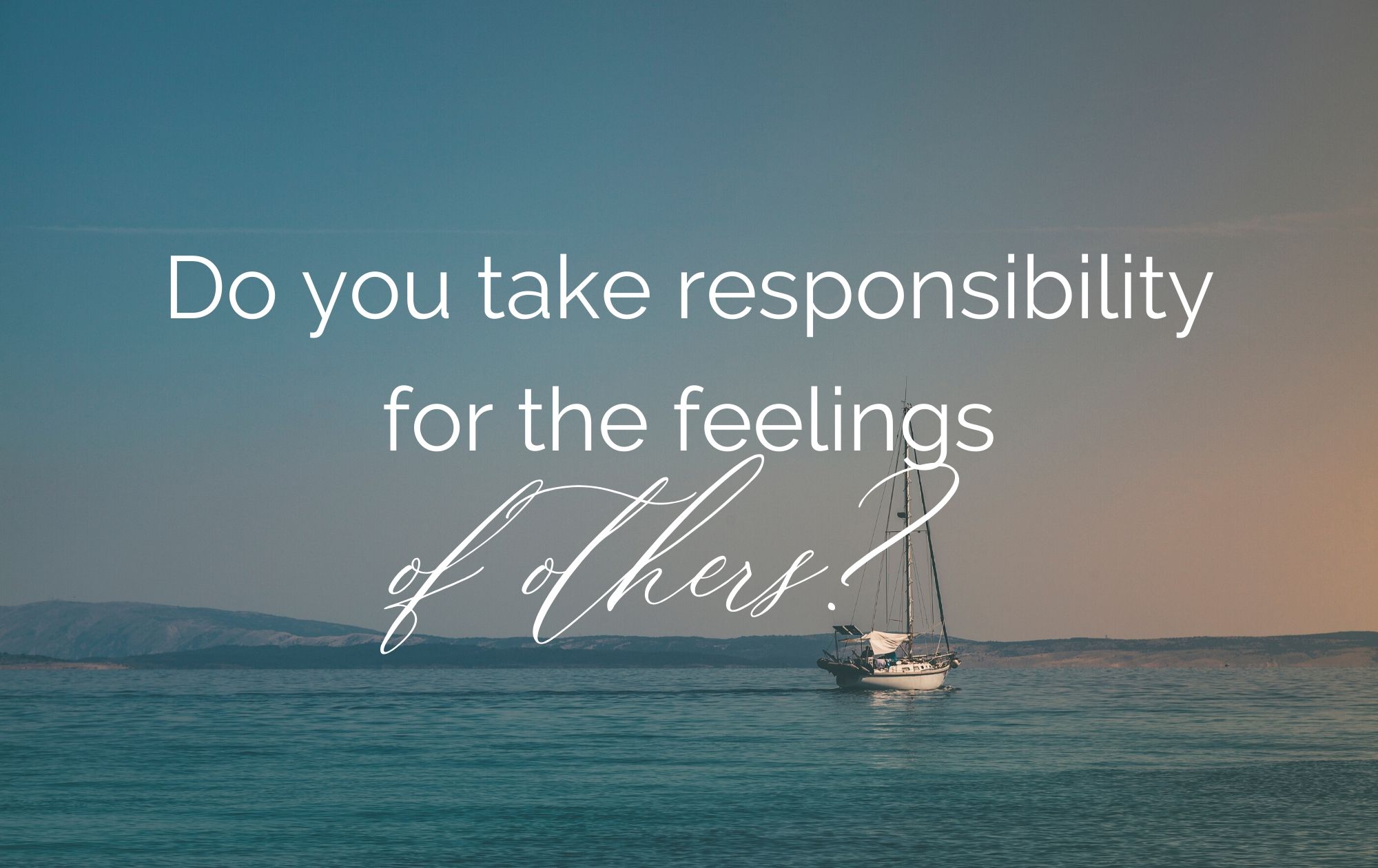Learning to take compassionate responsibility for our actions and have compassion for how others receive our actions, rather than taking responsibility for the feelings and needs of others and feeling guilt and shame:
The dominant domination culture has a distorted relationship with responsibility of the feelings for others, which is clearly reflected in the English language.
As children, we may have heard things like,
“You made me feel upset / angry.” (Rather than, I feel upset when I see you do that.”)
“You upset me.” (Rather than, I felt upset when I heard you say that.”) Imagine someone saying, “you happy me!”
“I’m upset/ angry at you.” (Rather than, “I feel upset / angry in response to what you did.”)
“I’m upset/angry with you.” (Imagine someone saying, “I’m sad at you/I’m sad with you!”)
“You’re frustrating / annoying.” (Rather than, “I feel frustrated / annoyed.”)
There are many ways in which our language embeds thoughts of causality for the feelings of others, that we can often take on as children.
In this paradigm, if we’re made responsible for the feelings of our parents and other adults, and particularly if those feelings are anger or frustration, we may then feel fear or shame when others feel painful feelings.
Since conditioning is so powerful, we may then often continue feeling scared or shame when another person is upset, particularly in response to something we have or haven’t done.
I remember being like this for many years.
I would feel terrified of ‘doing something wrong’ – and another person feeling upset, and was overcome with a lot of related terror and guilt and shame; which would lead much of my behaviour being around making sure that I didn’t do anything that another person might possibly feel upset in response to.
As I learnt about cultural conditioning, and became more compassionate with myself, and learnt the difference between taking responsibility for my actions and how they might affect others, to taking full responsibility for the other person’s feelings and needs and reactions, something wonderful happened.
Before, I was consumed with fear and guilt and shame. I didn’t have much, or any capacity, to have compassion for the feeling responses of others. I was so busy hitting myself with emotional sticks that there was no space left.
As I learnt to put down the emotional sticks, gain compassion for myself, and to differentiate between taking responsibility for the other’s feelings from taking responsibility for my actions, the guilt and shame and fear receded, to be replaced with increasing capacity for compassion for the other.
I changed my language, thanks to Nonviolent Communication.
Instead of the phrases above, such as, “I made that person feel upset,” I chose to think and say things like, “When I did that, they felt upset.
As I disentangled my responsibility for the other’s feelings from my responsibility for my actions, I could then listen with compassion if I did or didn’t do something that was painful for someone else.
I could apologise without feeling guilty.
Beforehand, I was consumed with, “I’m sorry, I’m sorry, I’m sorry,” which went along with thoughts like, “I made them upset, it’s my fault, I’m a bad person,” and all the corresponding guilt and shame and self-judgment.
As I listened with compassion to past fear and shame and guilt of my inner children that went along with the thoughts of “I caused their feelings and I’m responsible and I’m bad,” and changed my present-day language to reflect my responsibility for my own needs and feelings and behaviours, everything changed.
Now, an apology from me comes from a place of compassion for myself and my humanness and compassionate presence to be able to listen to how it was for the other person when I did what I did or didn’t do what I didn’t do.
Apologising without guilt and shame and with compassion for both parties.
And as I deepen my understanding of decolonisation, I see how helpful this is as I learn more and more about how colonisation has spread.
I’m so passionate about this journey we are on of co-creating a new paradigm, which moves away from the domination paradigm of guilt and shame, wrongness and badness, blame and judgment, to one of deep compassion for ourselves and others, and the capacity to take responsibility for our actions from a place of that deep compassion.
∞∞∞∞∞∞∞∞
If you would like to be a part of a supportive community of people increasing their capacity for self-compassion and compassion for others, and you’re familiar with my work, the doors for the Marion Method Immersion close in 2 days!
